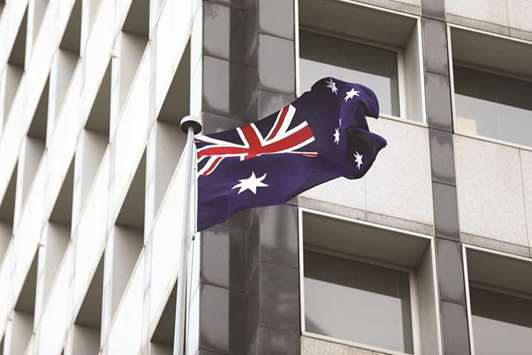While Islamic finance centres in Southeast Asia and the Middle East keep dominating core developments in the sector, and news are currently almost exclusively focused on upcoming Shariah-compliant financial markets in Northern and Sub-Saharan Africa, Central Asia and Europe, activities elsewhere are quite out of the limelight, but unjustifiably so.
An upcoming Islamic finance forum, the IFN Australia Forum 2018, to be held on March 27 in Sydney, serves as a reminder that Shariah-compliant finance is a quite active segment of the financial industry in Down Under, and also a sustainably growing one. Even though the country of 25mn people – of which 2.6% or around 650,000 identify themselves as Muslims as per the latest census in 2016 – does not have dedicated Islamic finance laws and regulations, the Shariah-compliant finance scene is blooming in line with Australia’s strong economic fundamentals.
The country in fact has a substantial number of Islamic finance service providers which offer a broad scope of Shariah-compliant finance products ranging from house financing, Islamic pensions, wealth management to halal superannuation funds and takaful. Major industry players include Hejaz Financial Services in Thomastown, Victoria, one of the largest Islamic finance institutions in Australia; Melbourne-based MCCA Islamic Finance & Investments (formerly Muslim Community Cooperative of Australia); Islamic Co-Operative Finance Australia in Parramatta, Islamic home financing provider Iskan Finance and Islamic investment firm Crescent Wealth, both based in Sydney; Amanah Islamic Finance Australia based in Coburg, Victoria, as well as Islamic finance divisions of National Australia Bank and Westpac Banking Corp, which are mainly designing Muslim-friendly mortgage products to cater to the burgeoning real estate market where one of the most popular Shariah-compliant products is diminishing musharaka for home financing.
In addition, there are institutions such as the Australian Center for Islamic Finance in Melbourne, which offers Islamic finance skills training, the Islamic Financial Services Council of Australia, an industry body providing analysis, advice and advocacy for the Australian Islamic financial services industry, also based in Melbourne, and the National Center of Excellence for Islamic Studies funded by the Australian government and operating in a collaboration between the University of Melbourne, Griffith University and Western Sydney University.
The growth of Islamic finance in Australia is, first of all, owing to a growing number of Muslim immigrants over the past decade or two. Among the Muslim communities in Down Under, the largest are originating from Bosnia, Bangladesh, Egypt, Iraq, Lebanon, Turkey and Somalia. There is also a Kurdish Muslim community, and more than 1,000 people identify themselves as Aboriginal Muslims, being descendants of Afghan cameleers who arrived in Melbourne in 1860, or have Indonesian ancestry.
Most of the growth in the number of Muslim Australians occurred in the recent past, with a 15%-growth between the 2011 and 2016 census alone and a 40% growth from 2006.
“The Australian Muslim community has experienced rapid growth since the 1990s, both in number and wealth,” explains Hakan Ozyon, CEO of Hejaz Financial Services and Chairman of the Islamic Financial Services Council of Australia.
“I decided to establish Hejaz back in 2014 to provide complete Islamic financial services solutions under one roof. Meanwhile, Hejaz is competitive with existing banks and is set to reach $1bn in assets by 2021,” he adds.
Apart from demand from domestic Muslims, as of late there is also strong interest from Shariah-compliant investors from Southeast Asia and the Middle East, particularly in Australia’s booming real estate sector.
For example, Malaysia’s Lembaga Tabung Haji, a fund that facilitates savings for the pilgrimage to Makkah through investments in Shariah-compliant vehicles, is one of the biggest Islamic investors into Australia. Institutional investors from the UAE and Saudi Arabia are also on the outlook for Islamic property investment in the country’s real estate hot spots Sydney, Melbourne, Brisbane, Adelaide, Perth, Darwin and Cairns.
The growing inflow of Shariah-compliant funds has propelled Australia among the non-Muslims jurisdictions with the largest amount of Islamic assets under management besides the UK and Luxembourg. Analysts forecast the Australian Islamic investment fund industry to grow up to $22bn in assets by 2020.
The sustained growth of Islamic finance in Australia is even more interesting to observe because the government did do much to support the industry. In September 2008, Canberra commissioned a report into how to position Australia as a financial services hub in the Asia-Pacific region, and the analysts came up with a number of recommendations, including the development of Islamic finance. However, the government, although encouraging Muslim communities to set up their own financial services ecosystem, has been overall slow in responding to the booming Shariah-compliant finance scene and is also hampered by weak institutional support from most large conventional banks and by the fact that most financial regulation and legal issues are handled autonomously by Australia’s federal states. While this will not necessarily curb further growth of the industry for the Muslim clientele, it remains a challenge for the expansion of Islamic finance into the non-Muslim financial market in Australia, which, like elsewhere, requires clear investment rules and regulations for legal reasons.

The Australian flag flies outside the Reserve Bank of Australia headquarters in Sydney. Australia has a substantial number of Islamic finance service providers which offer a broad scope of Shariah-compliant finance products ranging from house financing, Islamic pensions, wealth management to halal superannuation funds and takaful.


